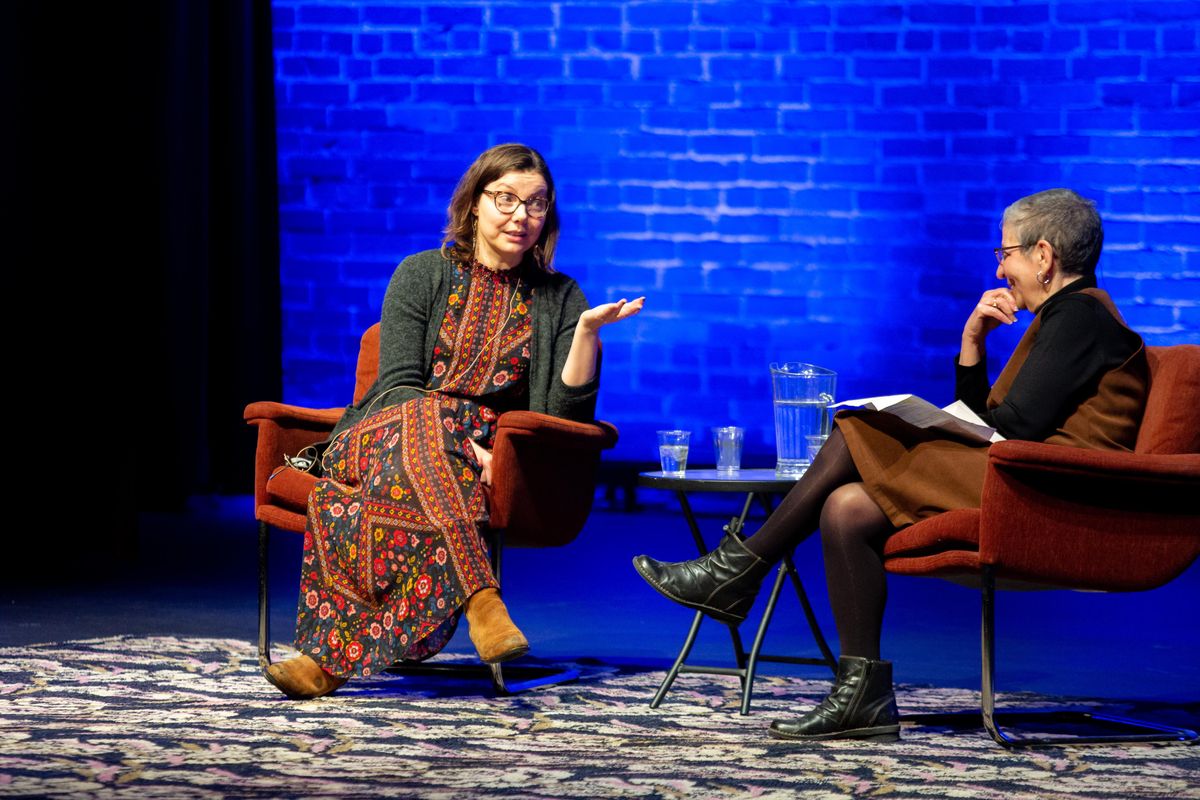Shields dives through nuclear bomb history of ‘loose lips sink ships’ at Northwest Passages Book Club

Before her first novel was published, Spokane author Sharma Shields was already looking to start writing another book.
She scoured old, rundown factories in the Inland Northwest, including those along Sprague Avenue in downtown Spokane. She was searching for inspiration for a modern retelling of Mary Shelley’s “Frankenstein,” she said.
About that time, doctors diagnosed Shields with multiple sclerosis. Some people would ask if she suspected it was because she lived downwind from the Hanford nuclear site, where the plutonium for atomic bombs – including the bomb dropped on Nagasaki – was developed.
So Shields, being a librarian, began to research the site as she pivoted from her original Shelley idea.
“I started thinking, ‘Wow. Hanford would be a great for a mad scientist.’ ”
That was in 2015, and Hanford later became the setting of her book “The Cassandra,” with its main character Mildred Groves, who’s thrown into a role as a secretary at the top-secret research facility.

Shields opened up Wednesday to an audience at The Spokesman-Review’s Northwest Passages Book Club at the Bing Crosby Theater, where she talked about “The Cassandra,” a historical fiction novel set at the Hanford nuclear site during World War II.
Shields remembered touring Hanford during her research for the novel, published in February.
“They have a lot of signage in the B Reactor,” she said. “It was all ‘loose lips sink ships’ themed,” Shields said. “My favorite was a giant sign that had a woman standing in a house peering out curiously through the windows. Her husband is out in the front, and he has his fingers to lips, and it says, ‘Don’t even tell her.’
“Those posters were made for people who didn’t have any idea what they were doing. They wanted everything top secret.”
Shields said she wanted her book to show the demeaning culture that gripped Hanford at that time. Women and African-Americans were segregated and treated poorly.
Before its publication, the book was put in a new light after Shields watched hearings on Brett Kavanaugh’s nomination for the Supreme Courtand heard allegations of sexual abuse and dishonesty against him.
“It was startling to see unfolded on a major stage like that,” she said. “It was odd.”
Shields also said she wanted to accurately portray how African-Americans were treated at places like Hanford.
“I didn’t want the book to be whitewashed,” she said. “When a white writer writes a book, they can neglect to include another perspective, and I wanted to avoid that.”
Shields was interviewed by Nancy Pearl, a nationally known librarian and best-selling author. A portion of the event’s proceeds will go to the Spokane County Library District.